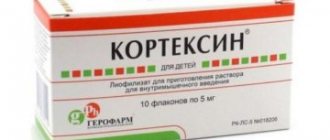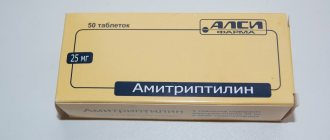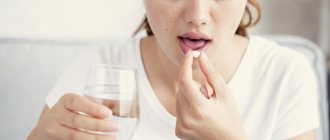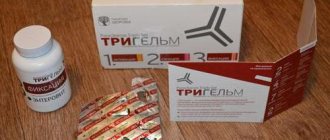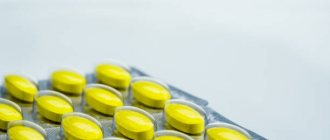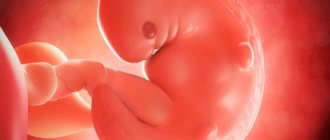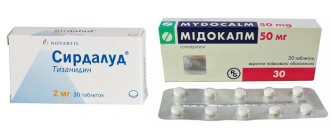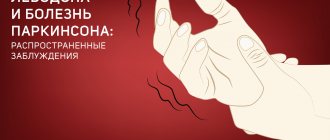St. John's wort, antidepressant drugs: instructions for use and reviews
Depression, stress, chronic fatigue are frequent guests for every adult. The modern pace of life leaves no room for self-pity and proper rest. In large cities, people are forced to sleep only five to six hours in order to have time to get to their place of work. There is little time left for hobbies and recreation. This lifestyle inevitably leads to depression and mental disorders. Antidepressive drugs will come to the rescue. St. John's wort is a proven and safe component that has a fairly mild effect on the mental state and nervous system.
The healing properties of St. John's wort
The plant has been known since ancient times for its sedative, relaxing and antidepressant effects. Our ancestors also actively consumed St. John's wort tea for melancholy, apathy, and melancholy.
In the modern world of alternative medicine, St. John's wort has also become widespread. Even official pharmacology has adopted this plant, having managed to synthesize an analogue of its juice in the laboratory. The main active ingredient is hypericin, it is due to its action that an antidepressant, relaxing, and mild sedative effect is achieved.
There is a theory that bioflavonoids from St. John's wort juice accelerate the conversion of dopamine to norepinephrine. Moreover, to stimulate the process, therapeutic doses of hypericin and only a slight presence of this element in the blood are sufficient.
Admission rules
St. John's wort is not an absolutely safe plant. It should only be used with the permission of a doctor. The specialist will select an effective dosage to treat depression. If you follow it, the body will benefit and strength will be restored.
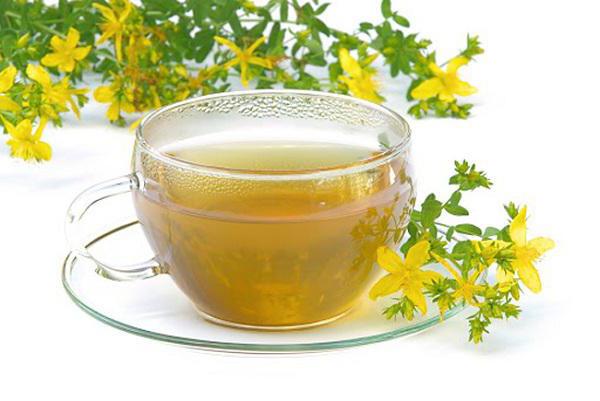
Treatment is performed using infusions, decoctions, and teas. The infusion can be consumed in doses of no more than 300 ml per day. Admission is carried out in courses. For example, a decoction or tea is consumed for 2-3 weeks, then a week's rest is required, and then the treatment continues. Then St. John's wort will be effective for depression.
How to brew St. John's wort for depression? To prepare tea you will need a plant (2 tsp) and boiling water (200 ml). The mixture should sit for about 10 minutes to obtain the medicine. You need to drink tea fresh in the evenings and in the mornings. Herbal treatment is a long process; to improve the condition, you need to take the drink regularly for 2-3 months. However, the improvement will be noticeable after a month.
List of St. John's wort preparations
Modern pharmacology offers a fairly impressive list of such drugs. The average cost of each of them is about five hundred rubles per package. Preparations based on St. John's wort for depression, unlike analogues from the SSRI group and MAO inhibitors, can be purchased at the pharmacy without a prescription. They do not have serious side effects and are neither physically nor psychologically addictive.
List of the most popular St. John's wort preparations:

St. John's wort and nervous system disorders
Scientists have proven that the use of drugs based on it has a miraculous effect. Elimination of depressive states and neuroses is attributed to such components as:
Often this problem can be solved using an integrated approach. Substances based on it accelerate the removal of other medications from the body. Most often this concerns antidepressants.
Treatment of a nervous breakdown with St. John's wort manifests itself in the following effects:
● increases the level of serotonin, norepinephrine, dopamine;
● lifts and regulates mood.
Its action is equated to antidepressants, but it has no side effects and is not addictive. In order to avoid such negative effects, you should take the plant in limited quantities. The dose is individual for everyone and depends on the complexity of the condition.
"Negrustin" is the most popular St. John's wort preparation
It is a tablet preparation for oral administration. Each tablet contains 0.4 grams of St. John's wort extract.
The drug has a mild antidepressant effect, relaxes muscle tone, and restores sleep phases. It is not a full-fledged analogue of tranquilizers or antidepressants, therefore it is sold without a prescription. It has anxiolytic activity, therefore its action resembles the drugs “Tenoten” or “Afobazol”.
Indications for the use of this drug on St. John's wort:
- anxiety, suspiciousness, irritability;
- sleep problems;
- initial stages of depressive disorder;
- fears and phobias;
- unmotivated aggressiveness;
- period of withdrawal or hangover syndrome.
Side effects include drowsiness, fatigue and decreased performance. If such a problem occurs, the dosage of the drug should be reduced. If drowsiness and performance problems continue, you should completely stop taking Negrustin.

"Hypericin": instructions for use
The drug is named after the main active ingredient of St. John's wort juice. This is its main ingredient, due to which the medicine has a sedative, antidepressant and sedative effect.
- arrhythmia and breathing problems for psychosomatic reasons;
- sleep disorders;
- waking up earlier;
- hyperactivity in adolescents;
- initial stages of depressive disorder;
- fears and phobias;
- unmotivated aggressiveness;
- period of withdrawal or hangover syndrome.
Perfectly eliminates anxiety and fears during the abstinence period in people with addiction. In this case, it is advisable to take the drug in a course, since the effect is cumulative. You can notice the therapeutic effect of Hypericin only from the second or third week of taking it. This is a problem with all drugs whose effect is achieved through plant extracts.
Causes of depression
Depressive conditions can affect people of all ages. This is often due to the values of modern society that affect a person. For example, the desire for well-being, fame, career advancement. If a person does not immediately get everything he wants, then worries about this can cause depression.

Often this condition appears after betrayal, dismissal, divorce, illness or death of a loved one. The reason may be contempt or ridicule of people. Sometimes depression appears without a reason. In this case, everything is connected with neurochemical processes in the human body.
"Deprim": instructions, indications, side effects
One Deprima tablet contains 60 mg of dry extract of St. John's wort. The drug can be purchased at any pharmacy without a prescription from a doctor.
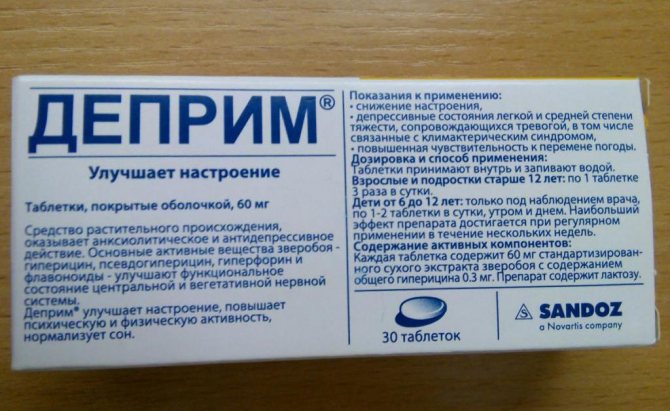
Indications for use of the drug:
- psychovegetative disorders;
- insomnia;
- increased anxiety;
- unmotivated irritability, psychosis;
- increased excitability;
- hyperactivity in adolescents;
- initial stages of depressive disorder;
- fears and phobias;
- increased weather sensitivity.
Side effects may include drowsiness, apathy, and indifference to surrounding events. In some cases, taking high doses of Deprima can provoke digestive upset and urticaria, dermatitis, eczema, and itchy skin. If such symptoms appear, you should either reduce the dosage or stop taking it completely. Skin rashes are a fairly rare side effect from St. John's wort herb preparations, this indicates an individual intolerance to hypericin.
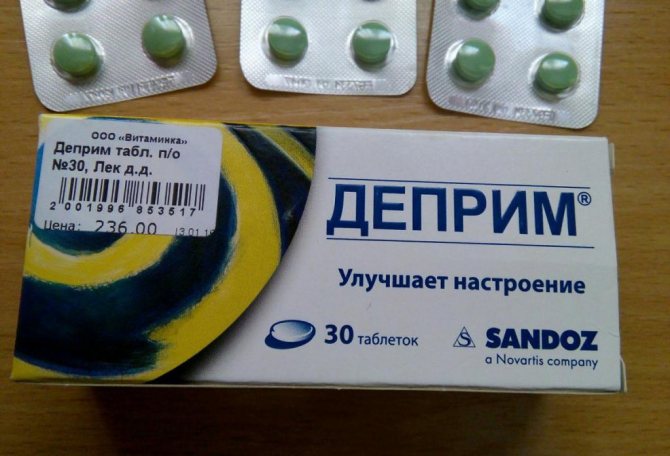
"Hyperforin" - description of the drug
Another drug with St. John's wort for depression. Like all analogues described above, the patient notices the effect of the medicine on the body only from the second or third week of taking it. You can buy the drug without a prescription from a doctor, the cost of the package is from three hundred rubles and more, depending on the number of tablets in the package.
Indications for use of "Hyperforin":
The drug is approved for use even by teenagers and schoolchildren: the main thing is to choose the right dosage. "Hyperforin" should not cause drowsiness, apathy or decreased performance. Such manifestations indicate individual intolerance to St. John's wort.
If you experience indigestion (another common side effect of St. John's wort for depression), you should reduce the dosage or completely stop taking Hyperforin.

"Gelarium" - a safe antidepressant based on St. John's wort
Available in tablet form, the main active ingredient is dry extract of St. John's wort. The drug has an anxiolytic and mild antidepressant effect on the psyche.
Dispensed in pharmacies without a doctor's prescription. The approximate cost is about two hundred rubles. There are 30 tablets in a package, which is enough for an average of one and a half to two weeks of use. The general course of therapy is at least one month. Hypericin accumulates in the cells of the body rather slowly, so the therapeutic effect of the drug cannot be noticed immediately, and more often only from the second or third week of administration.
"Neuroplant": instructions for use
One capsule of the drug contains 300 mg of St. John's wort extract. Excipients - methanol, ascorbic acid, starch, croscarmellose sodium, silicon dioxide, magnesium stearate. The cost of one package is about four hundred rubles. Belongs to the class of antidepressants.
Among the side effects, many patients note dyspeptic disorders. fatigue, photosensitivity, allergic reactions (most often itching, urticaria, papules, dermatitis, eczema).
Indications for taking Neuroplant;
- nervous tension during periods of increased stress;
- chronic anxiety disorders;
- chronic alcoholism;
- unmotivated irritability, psychosis;
- increased excitability;
- hyperactivity in adolescents;
- initial stages of depressive disorder.
It should be noted that when taken simultaneously with oral contraceptives, Neuroplant may reduce their effectiveness, increasing the possibility of fertilization. The instructions focus the patient's attention on this. When taking high doses of Neuroplant with alcoholic beverages, an alcoholic coma may develop.
The therapeutic effect reaches its peak approximately in the second week of regular use of Neuroplant. The dosage is selected individually for each adult, the minimum is two tablets per day.
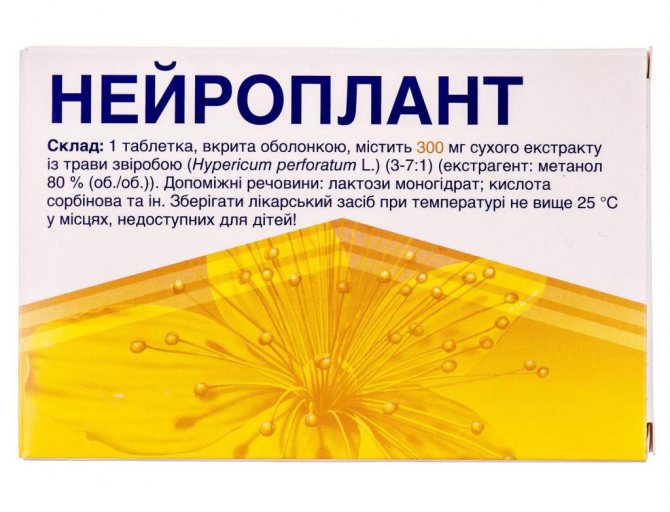
The use of St. John's wort for depression
St. John's wort has been used since ancient times to reduce anxiety, treat insomnia, and depression. The drug was used for the treatment of neuralgia, psychosis, and psychiatric pathologies. The plant was actively used by Hippocrates, Galen, and Paracelsus. St. John's wort was prescribed by Nichols Culpeper for depression. When antidepressants began to be produced (1652 g), the herb began to be used as a secondary drug. It was prescribed more often in European countries.
According to scientific research, the plant improves the patient's condition with depression by reducing the reuptake of serotonin by neurons. Hypericin and hyperforin increase the functioning of the nervous system. In terms of its effects, St. John's wort is almost equal to antidepressant drugs that are prescribed to patients with mild depression. However, for severe clinical depression, the plant is not highly effective, unlike traditional antidepressants. There is a group of psychiatrists who do not consider St. John's wort to be an effective drug for depression and classify it as an auxiliary drug.

Any medicinal substance can cause harm if used incorrectly, including medicinal herbs. You cannot drink decoctions and infusions of plants in unlimited quantities. If used incorrectly, an allergic reaction, as well as other undesirable effects, may develop. Before using St. John's wort as a medicinal herb, you should definitely consult a doctor to clarify the required medicinal dosages, as well as methods of preparation.
A safe daily effective dosage for patients with depression has not yet been established. Scientists cannot say exactly how much microelements and active ingredients of St. John's wort enter the body. Because of this, it is very difficult to trace the metabolism of the active components.
The approximate dosage for depression is 300 mg of St. John's wort extract in the morning, afternoon and evening. The dosage is calculated more based on the substance hypericin. It has a calming effect on the nervous system. If the dosage is not appropriate, the patient feels unwell (malaise, drowsiness, allergic reaction, etc.), it is necessary to reduce the dosage or discontinue therapy.
Advice from psychiatrists: features of taking drugs based on St. John's wort
How to accelerate the accumulation of hypericin in the tissues of the body and promote its maximum effect, simple tips will tell you:
- During therapy, you should completely stop drinking alcoholic beverages, coffee, and black tea. Juices, compotes, fruit drinks, green tea, chicory and any drinks that do not have a stimulating effect on the body are allowed.
- You should not combine the use of St. John's wort with other sedatives, tranquilizers and antidepressants.
- Parallel intake with B vitamins will help to quickly restore the healthy functioning of the nervous system.
- You cannot starve or go on strict diets during treatment with St. John's wort, since eating disorders contradict the principles of stress-free life and only further exhaust the nervous system.
- You should refuse work that brings excessive stress. Over time, such employment will provoke the development of serious problems with the nerves and psyche, and will then require much more expensive treatment.
source
Antidepressants from St. John's wort
Antidepressants based on St. John's wort are often used, despite the emergence of more modern analogues. Herbal medicines have the necessary properties that provide a sedative effect. There are single- and multi-component products. When choosing, they need to be compared by composition, properties, indications for use and contraindications.
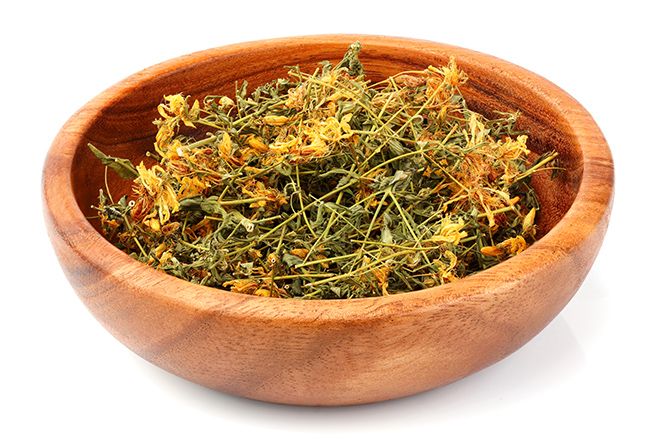
Pharmacy medications containing St. John's wort
Pharmacies have a wide selection of antidepressants based on St. John's wort. Medicines for depression are inexpensive. You can buy them without a doctor's prescription.
Antidepressants based on St. John's wort:
The drugs help well with mild forms of depression. The products are approved for use during pregnancy and for elderly patients. With the use of these medications, patients experience symptoms of depression within 1-2 months.
If decoctions and pharmaceutical products based on St. John's wort are used incorrectly, undesirable manifestations may occur. When treating depression, patients may experience diarrhea syndrome, disruption of the vestibular apparatus (dizziness), and intolerance to bright light. The drugs may cause allergies in the form of a rash on the skin. Some patients experience general malaise, nausea, and dry mouth. Symptoms of depression may increase.
Medicines for depression should not be combined with warfarin, other antidepressants, or medications for HIV infection. It is not advisable to take medications during pregnancy (allowed if necessary). St. John's wort may reduce the concentration of birth control medications. It should not be used concomitantly with steroid hormones.
The effectiveness of antidepressants from St. John's wort
The drugs belong to the group of sedatives. The plant contains components that resemble fluoxetine in structure and properties - this is the active substance in the common antidepressant Prozac. St. John's wort is a universal remedy used for inflammation of skin diseases and other pathological conditions; at the same time, it is effective in the treatment of disorders of consciousness, depression, and sleep disorders.
Such medications eliminate anxiety, help reduce the risk of panic attacks, restore coordination of movements, and help get rid of dizziness and changes in blood pressure. The mechanism of action of drugs based on St. John's wort is based on the ability of the components that make up the plant to prevent the reabsorption of serotonin by brain tissue. Due to hypericin, the nervous system is restored.
It is noted that bioflavonoids in St. John's wort exhibit the ability to bind to benzodiazepine receptors, thereby providing a sedative effect. In addition, the drug affects different types of MAO. As a result, mood, physical and mental performance improves, and sleep is restored.
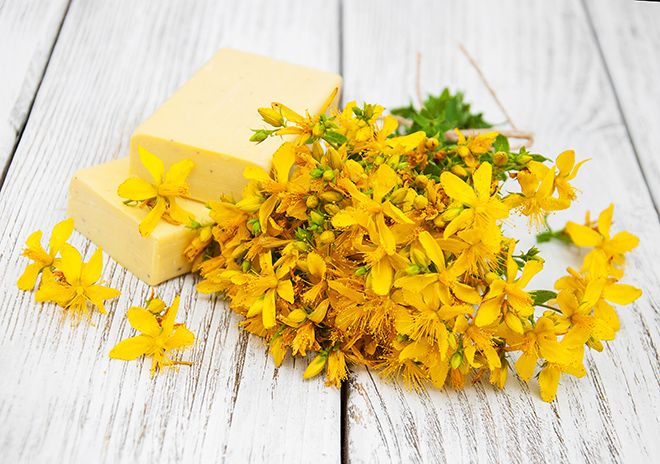
Pharmacy products
Pharmacies sell powders made from this herb. The product is effective in eliminating sleep disorders associated with depression. It is very popular. You need to take 2-4 g of St. John's wort for depression as part of the medicine, which will help get rid of insomnia. The following medicines are made with this herb:
These products are safe and effective. They have a minimum of side effects, so in some cases doctors allow pregnant women, as well as people with weak immune systems, to use them. The drugs do not have a sedative effect, so they are also used before driving a car or doing dangerous work.
Full list of drugs
St. John's wort, as an antidepressant, is used in the production of the following products:
- Gelarium Hypericum;
- Negrustin;
- Deprim;
- Neuroplant.
They differ in release form and may contain auxiliary components that enhance the effect of St. John's wort. Gelarium Hypericum is a herbal antidepressant. The active ingredient is dry extract of St. John's wort. This drug is used as an anxiolytic and antidepressant. Properties: eliminates anxiety, relieves tension, improves mood. The drug is prescribed for mood swings, apathy, the development of neurotic reactions, mild and moderate depression. You can buy it in the form of pills.
Negrustin is available in capsule form. According to indications for use and contraindications, this remedy is similar to Gelarium Hypericum. Another analogue (Deprim) contains dry extract of St. John's wort in a dosage of 60 mg, hypericin - 0.3 mg. This drug affects the central nervous system. Available in tablet form.
Properties of the drug, indications
The plant raw material of St. John's wort contains many different chemical elements: hypericin, flavonoids, rutin, essential oils, catechol tannins, caffeic acid derivatives.
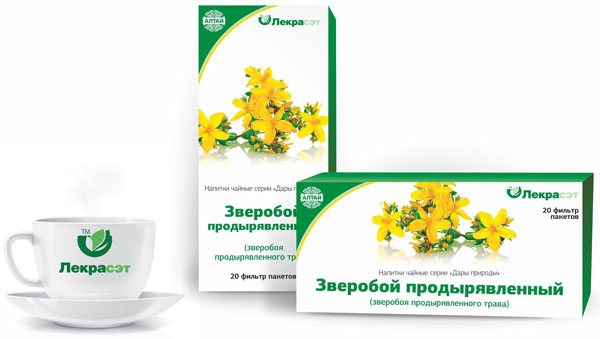
Natural properties of St. John's wort as an antidepressant:
- the drug can have a calming effect;
- the medicine improves mood by binding serotonin molecules and other neurotransmitters;
- the drug is also involved in the formation of melatonin.
The drug enhances the function of the digestive tract, increases blood flow in organs and tissues. The herbal remedy can have a powerful anti-inflammatory effect due to the presence of flavonoids in its composition. Hyperforin, contained in the herb St. John's wort, has the ability to reduce the vital activity of streptococci. Hyperforin can even kill bacteria that are resistant to penicillin antibiotics.
Indications for the use of St. John's wort herb:
- presence of depression, anxiety;
- poor sleep;
- depression caused by hormonal changes (puberty, menopause);
- respiratory diseases;
- diseases of the digestive tract (gastritis, hepatitis, enteritis, gallbladder pathologies and others);
- pain syndrome due to joint pathologies, muscle strain;
- hemorrhage of various origins;
- herpetic rashes;
- treatment of the wound surface.
The medicine should not be used if you are allergic to any of the components. It is not recommended to prescribe St. John's wort preparations simultaneously with MAO inhibitors (monoamine oxidase). The product is carefully used in patients during pregnancy.
Possible consequences of taking
Despite their natural composition, such drugs can cause many side effects, including:
- disruption of the gastrointestinal tract: flatulence, constipation, diarrhea, nausea, abdominal pain;
- dry mouth;
- anxiety;
- allergy;
- anemia;
- eczema;
- fatigue;
- anorexia.
Negative reactions in most cases appear gradually, as the active component accumulates in the body. If side effects occur, you should stop the course of therapy. In this case, treatment is not required to eliminate negative signs. The symptoms disappear on their own after some time.
source
St. John's wort preparations for depression: tablets, extract and folk recipes
St. John's wort, or common St. John's wort (Latin name Hypericum perforatum) is a medicinal perennial, used in the pharmaceutical industry and folk medicine. The plant contains essential oils, flavonoids, alkaloids, saponins. Products prepared on its basis have a bactericidal, anti-inflammatory, healing, and soothing effect. St. John's wort in tablets is used as part of complex therapy for depression, neuroses, insomnia, and anxiety. The drug has contraindications; uncontrolled use can cause harm to health.
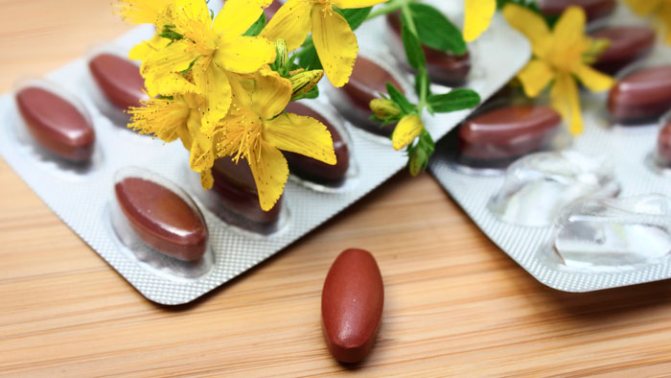
Contraindications
There are some restrictions on taking drugs based on it. These include:
● period of lactation and childbearing;
● taking antibiotics and contraceptives.
To avoid harm, you should first consult with a doctor who will take into account all the features of your condition and the course of the disease.
St. John's wort is a medicinal plant that has many beneficial properties. It has been known for its value since ancient times. Today, recipes based on this herb are also used. St. John's wort is used for depression. You just need to use proven recipes that will restore your normal state. They are described in more detail in the article.
Treatment with St. John's wort
The perennial is used in official and folk medicine. Its extract is part of a number of antidepressants that are not inferior in effectiveness to synthetic analogues. The active components are hyperforin, hypericin, flavonoid compounds. Medicinal herb:
- relieves anxiety and tension;
- fights feelings of apathy;
- reduces depression;
- improves physical and mental performance;
- has a calming effect, improves sleep, stimulates appetite;
- normalizes the condition of the central and peripheral nervous system;
- improves mood.
Depression is caused by a deficiency of neurotransmitters: serotonin and dopamine. Preparations based on St. John's wort compensate for the lack of these hormones, increase the level of their absorption in the brain and act on the principle of selective inhibitors.
Taking medications increases stress resistance and has a positive effect on the emotional state. Research by Spanish scientists has shown that the alkaloid hyperforin also inhibits the growth of cancer cells, prevents the development of tumors and the formation of metastases.
List of dosage forms
St. John's wort for depression is available in the form:
- herbal collection (loose and in filter bags);
- alcohol extract from perennial in a ratio of 1 to 5;
- dragees and tablets with dry plant extract;
- powder for insomnia.
Teas, decoctions, and infusions are prepared from dried raw materials at home.
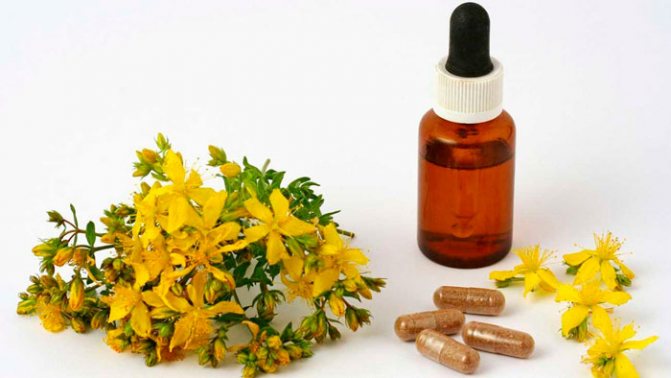
Use of St. John's wort extract
Indications for the use of tablets are:
- mild to moderate depression;
- depressed seasonal state caused by a lack of sunlight;
- chronic fatigue syndrome;
- sleep disturbances, lack of appetite due to stress and nervous exhaustion;
- apathy, loss of strength, decreased emotional background;
- sudden mood changes;
- obsessive-compulsive syndrome;
- development of phobias, regularly occurring panic attacks;
- irritability during menopause in women.
St. John's wort extract in tablets is taken before meals, 1-2 capsules up to three times a day, according to the dosage in the instructions attached to the medicine.
Symptoms
They can be emotional, which is expressed in hopelessness, nervous tension, and guilt. A person loses interest in many things, begins to think slowly, and loses attention. You may experience anxiety, fear, or anxiety.
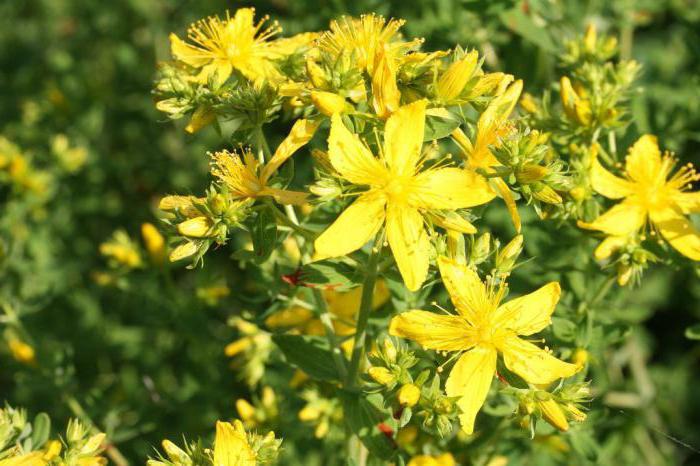
Symptoms are physical. These are fatigue, headaches, poor sleep. The person may lose appetite. The heart rate also increases, and excessive sweating occurs. Usually, emotional and physical symptoms are related. Whatever the causes and signs of the disease, you need to consult a doctor about this. For depression, timely treatment is important. Moreover, today there are effective traditional medicines.
Folk recipes
The inflorescences and leaves of the plant are used to prepare home remedies. When collecting raw materials yourself, choose environmentally friendly areas away from highways and industrial enterprises. Ready-made dry St. John's wort herb is sold in pharmacies. For the benefit of taking folk remedies, maintain the correct proportions and do not exceed the dosage. If unwanted side effects occur, stop treatment and seek medical help if necessary.
Brew 3 g of dry raw material with 200 ml of boiling water. Leave to sit for 10 minutes. Filter. Drink daily for 2-3 months. A pronounced antidepressant effect is observed no earlier than after 3–4 weeks of regular use.
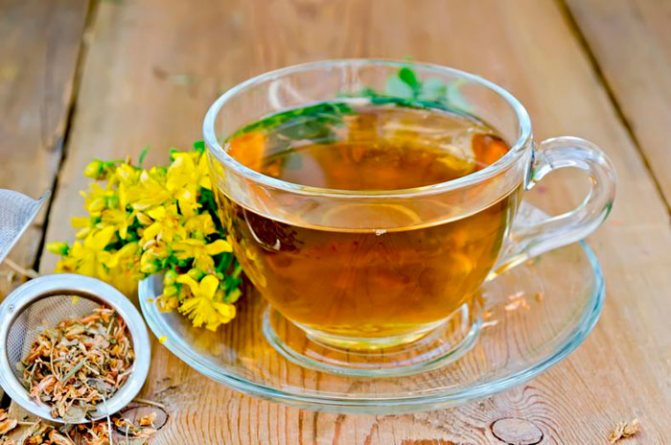
Infusion
Pour 2 tablespoons of herbs into a cup and pour a glass of boiling water. Cover and leave for 30 minutes. Filter, take 15 ml 4-6 times a day after meals. Course duration is up to 14 weeks.
Tincture
Take 3 tablespoons of dried crushed raw materials per 500 ml of vodka. Place the closed container in a place protected from light. After straining, drink 30 drops three times a day. The alcohol tincture tones, invigorates, and helps lift your mood.
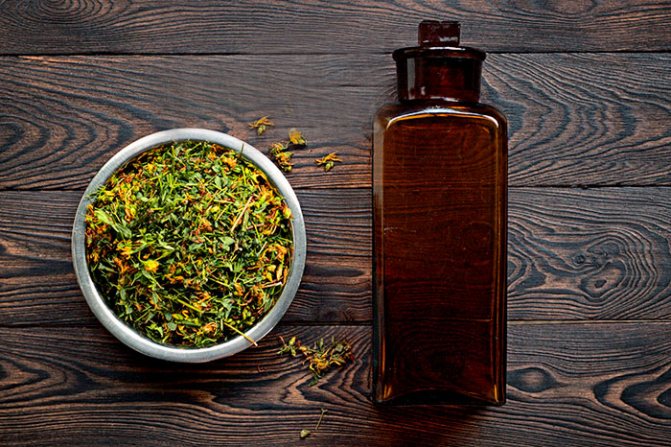
Decoction
Place 10 g of dry plant mixture in an enamel bowl and add 300 ml of water. Place in a steam bath for 25–30 minutes. Cool, filter. Bring to the previous volume by adding clean liquid. Drink 1/3 glass three times a day. The course of admission is 3 months. Helps get rid of anxiety, tension, and calms the nervous system.
Eleutherococcus, valerian, lemon balm, and rosemary also have a similar mild sedative effect. However, all these plants do not give quick results; to improve the condition, a long course of use is required.
How to take St. John's wort for depression in its natural form
Medicine for depression and insomnia can be prepared at home using the following recipes:
- Tea for insomnia. Mix valerian herb with St. John's wort flowers and peppermint in a ratio of 1:1:1 (5 g each), pour 300 ml of boiling water, leave for 10 minutes. Take before bed for two weeks.
- Decoction. Mix chamomile and St. John's wort flowers in a 1:1 ratio, add 500 ml of water, cook over low heat, and after boiling, simmer for another 10 minutes. The decoction is taken 50 ml half an hour before meals for no more than 1 week.
- Oil tincture. 10 g of St. John's wort flowers are poured into 100 ml of olive oil and infused in a dark, cool place for 40 days. The resulting oil extract is taken orally, 1 teaspoon before meals for two weeks.
- Oil-alcohol tincture. Fresh herb or St. John's wort flowers (500 g) are poured into 0.5 liters of white wine and 1 liter of oil (almond, olive), leave for 3 days, then evaporate the mixture in a steam bath. The resulting oil is infused for several weeks, filtered and taken 1 teaspoon on an empty stomach for a month.
Side effects
The instructions for use of St. John's wort warn about the interaction of the components contained in the herb with antihistamines, analgesics, and cardiac drugs. When taken simultaneously, the risk of side effects increases. The herb extract induces enzymes responsible for the metabolism of a number of drugs and reduces their concentration in the blood plasma. Check with your doctor first about the compatibility of St. John's wort with other tablets.
In case of overdose or prolonged use, nausea, dryness of the oral mucosa, digestive disorders, stool disorders, and stomach pain are noted. In some cases, increased sensitivity to sunlight and anemia caused by iron deficiency develop. Allergic reactions manifest themselves in the form of skin rashes, redness, and itching.
During the course of treatment, it is prohibited to drink drinks containing alcohol. Concomitant use with other antidepressants is not recommended.
